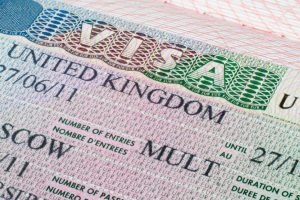Moving to France: What Visa Do UK Citizens Need After Brexit?
Since the end of free movement between the UK and France following Brexit, UK citizens face new immigration requirements when moving to France. The changes have made it more challenging for UK nationals to relocate, but understanding the visa and residence permit processes can help make the transition smoother. In this article, we’ll discuss the visa requirements for UK citizens planning to move to France and the key changes since Brexit.
The Impact of Brexit on UK Citizens Moving to France
Before Brexit, UK citizens had the right to live, work, and travel freely in France and other EU countries. However, the conclusion of free movement has significantly changed the way UK nationals are treated in France. As of January 1, 2021, UK citizens are now considered third-country nationals in the EU, meaning they no longer enjoy automatic rights of residency.
Here’s a breakdown of what you need to know if you plan to move to France after Brexit.
Short-Term Stays: No Visa Needed for Up to 90 Days
UK citizens can visit France for up to 90 days within any 180-day period without needing a visa. This applies if you are:
- Touring France
- Visiting family or friends
- Attending business meetings, cultural events, or sports activities
- Engaging in brief studies or training sessions
If your stay is within the 90-day limit, you won’t need a visa. However, keep in mind that the 90-day allowance applies to the entire Schengen Area. So, if you've spent time in other Schengen countries, it will count towards your 90-day total. You must also ensure your passport is valid for at least three months beyond your planned departure from France.
Long-Term Stays: What Visa Do UK Citizens Need for Stays Over 90 Days?
If you wish to stay in France for more than 90 days, you will need to apply for a long-stay visa (VLS-TS). This applies whether you are moving for work, study, family reunification, or other reasons. UK nationals no longer benefit from the freedom of movement and will need to follow standard immigration procedures for non-EU citizens.
Here’s a breakdown of the main long-stay visa categories:
1. Work Visa
If you are planning to work in France, you will need a work visa. To obtain a work visa, you must secure a job before your move to France. Your employer will need to submit a request for a work permit, and you will need to provide evidence of your qualifications and the role you’re being hired for.
2. Student Visa
For UK nationals wishing to study in France, a student visa is required. You’ll need to provide proof of enrollment in a French educational institution, evidence of sufficient financial resources to support yourself, and possibly proof of accommodation.
3. Family Visa
If you are married to or a close family member of a French citizen or a legal resident, you may be eligible for a family reunification visa. This visa allows you to join your family member in France, but you will need to provide proof of your relationship and meet certain financial requirements.
4. Retired Persons Visa
If you are retiring to France, you will need to apply for a retirement visa, demonstrating sufficient financial means to support yourself without relying on public funds.
5. Long-Stay Visitor Visa
This visa is for individuals who wish to live in France for an extended period without working. This could be ideal for those who wish to retire, stay with family, or enjoy an extended holiday. You must show proof of income or financial resources to support yourself.
Special Circumstances: Frontier Workers and Family Members
Frontier Workers
If you were working in France prior to January 1, 2021, and continue to work across multiple EU countries, you may be eligible to apply for a frontier worker permit. Known as a "document de circulation", this permit is free of charge and allows you to continue working in France while living in another EU country. It is essential that you apply for this permit through your workplace’s Prefecture.
Family Members of British Nationals
If you are married to a UK national who is living in France and has obtained the Withdrawal Agreement Residence Permit (WARP), you may be able to join them in France under specific circumstances. However, if your British partner did not benefit from the WARP, you will need to apply for a Schengen entry visa to join them in France. The visa will be processed free of charge if you can demonstrate a genuine relationship with the British national.
Visa Requirements for Non-EU Nationals
Non-EU nationals living in the UK must also meet additional visa requirements, including the need to apply for an Airport Transit Visa if traveling through an airport in the Schengen Area.
Changes for UK Nationals: What’s Unchanged?
While many aspects of immigration have changed for UK nationals post-Brexit, some things remain the same:
- Passport Validity: UK citizens can still enter France with a valid British passport that was issued before January 1, 2021.
- Short Visits: UK nationals can still visit France for up to 90 days within a 180-day period without a visa.
- Family Members of EU Nationals: If you are married to an EU national, you do not need a visa to move to France as long as you reside with your spouse.
The Withdrawal Agreement Residence Permit
The Withdrawal Agreement Residence Permit (WARP) allows UK citizens and their families who were living in France before January 1, 2021, to continue residing, working, and studying in France post-Brexit.
Key Points:
- Eligibility: UK nationals and their family members who were in France before January 1, 2021.
- Application Deadline: October 4, 2021. After this date, you may need to apply for a standard long-stay visa.
- Types of Permits: 5-year residence permit for those in France under five years, 10-year permit for those over five years.
- Family Members: Spouses, children, and dependents can apply under the same conditions.
The WARP grants continued residence rights, including healthcare and social security benefits in France.
Moving to France as a UK citizen now requires careful planning due to changes brought about by Brexit. While UK nationals can still visit France for short stays without a visa, longer stays, work, and family reunification will require a long-stay visa. Be sure to check which type of visa you need based on your purpose for moving and apply well in advance.
If you are uncertain about your specific circumstances or need assistance with the visa application process, consulting an immigration lawyer or visa specialist can be a wise choice to ensure your move to France goes smoothly.
For more information please follow French government’s entry requirements.
The top countries to move to: will you choose Dubai, Canada, or Portugal to begin your expat journey?





















